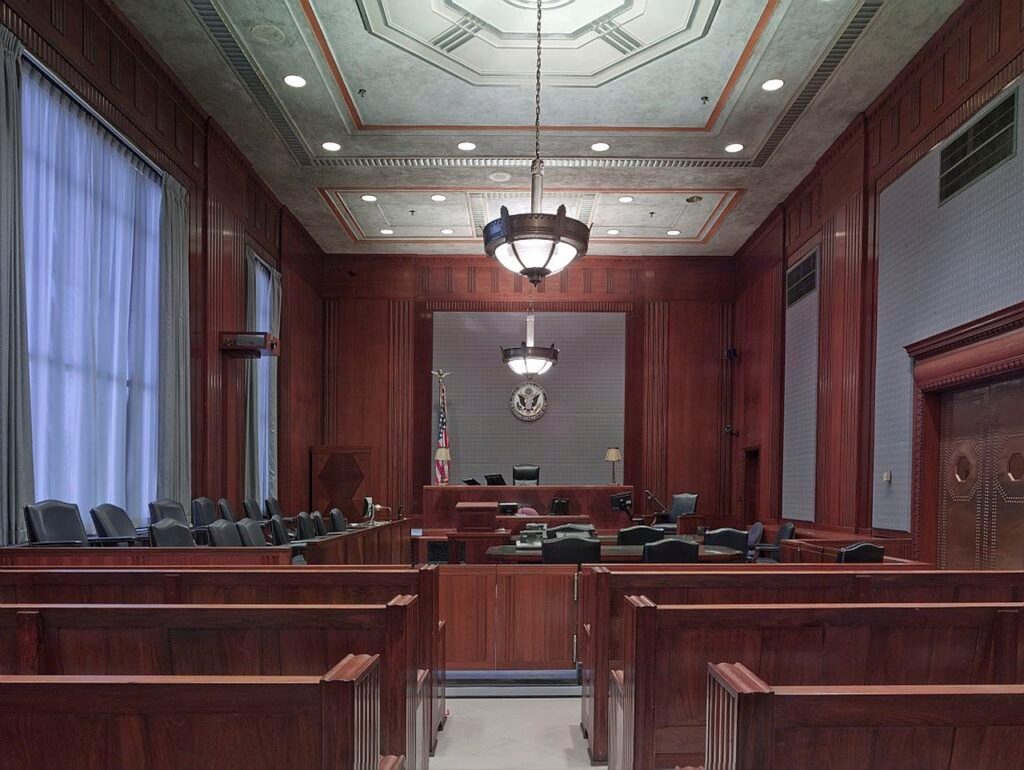Although it wasn’t my first call for jury duty, it was the strangest. On day one, I packed my lunch and hopped a bus to the courthouse, reporting for a five-day stint – longer if selected for the jury. (This was pre-Covid.)
Taking a seat at one of the tables in the jury room, I soon realized I’d be chatting with tablemates rather than reading. One of them, Judy, said for the past twenty years she’d gotten excused by saying she’d be travelling – until then. We all amiably discussed current events, pop culture and food. Each day we explored more personal matters like work, family and feelings. We never got as far as exchanging contact information, though Judy said if I went to Phoenix, I should look her up – not that I should look her up here in Cincinnati.
On day five I was selected as juror number nine and filed into an ancient courtroom to be scrutinized by counsel who’d veto the undesirables. Prosecutors sat smugly in their dark suits and ties and a stern-looking defense attorney hovered over the young black man who was accused of murder.
It seems the murder had happened at 3 A.M. in a dark men’s room in a bar where by then everyone was drunk. There were no witnesses, video camera or forensic evidence. The prosecution only had the arresting officer’s charges. Both sides wanted to know if we thought we could judge fairly with just the cop’s word. Among the first to be excused was the woman who said she didn’t automatically believe cops. For some reason, defense counsel while querying an engineer said lawyers love engineers because they’re logical and unemotional. Like machines.
Both sides asked about my being professor in a communication department, wondering if I knew the difference between a TV trial and a real trial. They wondered what I meant by answering yes to the question about whether I could make a fair assessment.
After pummeling the jury, counsel interviewed the alternates. The memorable ones are a scrawny half-deaf man who said he moved to Cincinnati from Alabama 40 years ago to be near his brother. He lived alone, worked at a menial job and watched sports on TV in his free time. The other was a woman who worked in a kitchen at a nursing home. She said she’d lost one job after voices in her head told her to wield one of the big knives and attack people, but medication had that problem in check for the moment.
One-third of us were replaced with alternates. They gave my seat to the deaf man. The knife-wielding woman replaced the woman who said she didn’t automatically believe cops. She and I walked together to the bus stop, agreeing that she’d been excused for her honesty. She said she thought I was excused because I’m smart. I guess counsel doesn’t want smart honest people on juries.

Wait – there’s more. Returning home I sat in the front row of seats on the bus facing a similar row across the aisle. After several stops, a frazzled man with bushy red hair sat down across from me and when I peeked, I could see his eyes fixed on my face. I was relieved when eventually he got up and walked to the back. But just as he returned to his seat, someone shouted, “Someone threw up back here!” The driver called the hazmat team and announced that they’d show up along our route and we’d have to get out and wait for a clean bus, but we arrived at my stop before that happened.
I felt like I’d been inside the looking-glass on opposite day. How could it not change the way I see people?
Have you read SYLVIE DENIED yet? I invite you to grab your copy, and please leave an honest review when you do!
